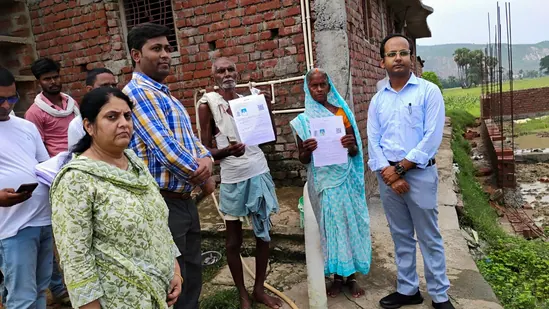
The Supreme Court on Thursday questioned the Election Commission of India (ECI) over its refusal to accept Aadhaar as valid proof of citizenship during the ongoing Special Intensive Revision (SIR) of electoral rolls in Bihar. The state is slated to hold its assembly elections in October–November 2025.
During the hearing of multiple petitions challenging the voter list revision, a bench comprising Justices Sudhanshu Dhulia and Joymala Bagchi asked the poll panel, “Why not Aadhaar?” The query followed a submission by senior advocate Gopal Sankaranarayanan, who pointed out that Aadhaar is listed under the Representation of the People Act as an acceptable document, yet it is not being accepted in the Bihar revision.
In response, EC’s counsel, Senior Advocate Rakesh Dwivedi, clarified, “Aadhaar cannot be used as proof of citizenship.”
Justice Dhulia emphasized that determining citizenship is not the ECI’s domain but falls under the purview of the Ministry of Home Affairs (MHA). The court further questioned the timing of the exercise, which began in late June, just months ahead of the assembly elections, raising concerns about its potential impact on voter rights.
“Why Link to an Upcoming Election?”
Justice Bagchi remarked on the controversial timing: “Why link this process to an incoming election at all?” The court warned that voters removed from the rolls just ahead of elections may be deprived of their voting rights due to the time-consuming appeals process.
The bench acknowledged the importance of removing ineligible names from voter rolls but expressed concern that initiating such a move so close to polls could have unintended consequences.
Petitions Cite Discrimination and Burden of Proof
The Special Intensive Revision has triggered legal challenges from transparency group ADR, Swaraj Party’s Yogendra Yadav, and TMC MP Mahua Moitra, among others. Petitioners argue that the EC’s decision is arbitrary and discriminatory, shifting the burden of proof to citizens—many of whom are poor or migrants—forcing them to re-verify longstanding voter credentials, including ancestral documents.
Senior advocates Kapil Sibal and Abhishek Manu Singhvi, representing the petitioners, contended that this could lead to mass disenfranchisement. The petitioners cite Article 32 of the Constitution in challenging the EC’s notification and are demanding a halt to the process until legal clarity is achieved.
EC Says No Voter Will Be Deleted Without Notice
The ECI maintained that no names will be removed without proper notice and opportunity for a hearing. However, the court asked the Commission to respond on three key issues: its legal authority to conduct a Special Intensive Revision, the procedures and documents required, and the rationale behind the timing.
Political Fallout
The exercise has drawn sharp political backlash. Congress leader Rahul Gandhi and RJD’s Tejashwi Yadav led protests, calling a statewide Bihar Bandh on Wednesday. Opposition parties claim the revision could target specific communities and erode democratic participation in the state.
The court is expected to continue hearings on the matter, which has now emerged as a high-stakes issue ahead of Bihar’s crucial elections.
Overview
Mission: To provide timely, in-depth analysis and reporting on digital policy, tech adoption, and the impact of transformation on citizens and businesses.
Focus Areas: Digital governance (e‑services, e‑payment systems like UPI), FinTech, cyber‑security, digital identity (Aadhaar), digital literacy, Internet of Things, AI, and rural connectivity initiatives.
Audience: Policymakers, tech leaders, entrepreneurs, academics, and citizens interested in India’s digital future.
Under Srinivas G. Roopi’s leadership, Digital India Times offers a trusted window into the breakthroughs and challenges of India’s digital revolution—staying true to its tagline by continuously tracking the transformation reshaping the country.
Copyright ©2025 Digital IndiaTimes. All Rights Reserved
Designed and Developed by Galaxy Tech Solutions